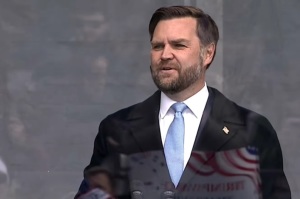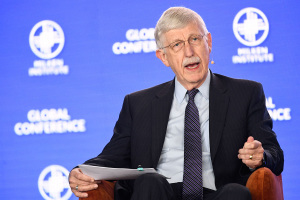Supreme Court Refuses to Hear Christian 'Candy Cane' Case
The Supreme Court refused on Monday to hear oral arguments surrounding a 2003 case in which a Texas school stopped allegedly deprived students of their freedom of religious expression.
Known as the "candy cane" case, the Supreme Court opted to not hear arguments for Morgan v. Swanson, which surrounded issues of student religious expression at schools in the Plano Independent School District.
In a statement, Director of Litigation of Liberty Institute Hiram Sasser explained that he was "disappointed" to learn of the Supreme Court's refusal.
"No student should be subjected to religious discrimination by the government," said Sasser, whose organization had represented the plaintiffs. "We were hoping to finally put this issue to rest: that government school officials should be held accountable when they violate the law and students' First Amendment rights."
Sasser told The Christian Post that the Supreme Court did not specify a reason for refusing to hear the case and rarely do.
"They almost never say why they are not reviewing case. They only review 70 or so a year out of 8,000 requests," said Sasser.
"Someday, we need the Supreme Court to stand up and bring an end to this sort of religious discrimination."
The legal issues began in 2003 when school officials from Thomas Elementary School stopped student Jonathan Morgan from distributing candy canes that had religious messages attached to them. In that same time, a class was not allowed to write "Merry Christmas" on cards that would be sent to soldiers serving abroad.
More commonly known as the "candy cane" case, it was brought to the courts when several Plano parents sued the school district. During the legal battle, Plano changed its policy on student expression to allow for the passing out of religious materials at certain times and places.
In 2009, a three judge panel of the Fifth Circuit Court of Appeals ruled that the new policy was constitutional, but it also ruled that the officials who first barred the students from certain religious expression in 2003 were liable for violating speech rights.
In November 2011, the full court of the Fifth Circuit ruled that the school officials were not liable for the alleged violation of student rights.
Charles Crawford, an attorney with Abernathy, Roeder, Boyd & Joplin, P.C. who represented Plano ISD in court, told The Christian Post that the school system has a "content neutral policy" on student expression.
"The PISD has a content neutral policy regulating the time, place and manner of student expression, which includes religious as well as nonreligious expression, during school," said Crawford.
"As long as the expression is not obscene or otherwise disruptive, students are free to distribute materials, including religious materials, during non-curricular times."
Crawford explained that while lower courts have ruled Plano ISD's policy "facially constitutional," there are still more legal matters surrounding the 2003 incident.
"[An investigation] must be conducted to determine what factually happened, whether any rights were violated based on the facts proven to have happened, and whether PISD can be held liable if any rights were violated," said Crawford.
"We are pressing on with this case against the school district and one of the government school officials who has not been granted immunity," said Sasser of the Liberty Institute to CP.



























